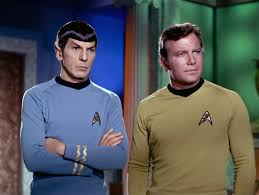Plague Journal, A Strident Cacophony
The Socrates Café met earlier this week. Seven or eight of us began by discussing the challenges of listening mindfully, carefully to what someone of a different culture has to say. Listening well is quite difficult. A member of our group asserted that we Caucasian Americans are accustomed to speaking, to the expectation that Americans of non-European backgrounds are obliged to listen, assimilating to the dominant White-English-speaking culture. I feel discomfort thinking of that suggestion, which is an indication that it is true.
Another difficulty with maintaining one’s silence in order to listen well, is personal insecurity, a felt devaluation about our place, our contribution, vis à vis others. My reflex — to fill the space between us with the sound of my own voice. By speaking I can control the social situation. I am sure that a number of orators, politicians, are quite insecure with themselves. The sound of their voice is an imposition upon others, an act of domination.
Naturally our Socrates Café discussion turned toward politics. We all agreed that the Presidential election in a few weeks will result in a radical change in the future of the nation. Clearly there is an absence of common ground between the two candidates to be chosen by ballot. Discussion of policy, problem solving consultation between the two sides is impossible. Each views the other from a hardened position, which demonizes the other  party, and those who occupy a different viewpoint. What has happened to the common ground? Many of us remember when Americans discussed disagreements with civility, and even discovered points of compromise?
party, and those who occupy a different viewpoint. What has happened to the common ground? Many of us remember when Americans discussed disagreements with civility, and even discovered points of compromise?
Someone suggested that there is an absence of myth, stories that exemplify the range of potential within human nature, the good and the evil. We talked about Star Trek as a mythic tale. Americans of all ages watched Star Trek, an adventure series of space exploration, “to go where no man has gone before…”, — peaceful exploration of other planets. One of the important values of the star fleet was the non-interference directive, that is, prohibition of interfering with the internal and natural development of other cultures.
I remember that my mother loved Star Trek and would watch the reruns with much satisfaction.
Indeed there’s a paucity of great, substantial stories in the current atmosphere. What do we have to build upon to find common ground, to forge a national consensus?
George Packer, writing for The Atlantic, in his article, America’s Plastic Hour Is Upon Us said this:
The familiar narratives are used up; the dried-out words stick in our mouths. For change to endure, for national shame to become pride, we need a radical agenda with a patriotic spirit. We have to revive the one thing that has ever held together this sprawling, multiplicitous country: democratic faith.
Indeed! What familiar stories, evocative of the potential and the liability of human nature, do we have at hand to evoke democratic faith?